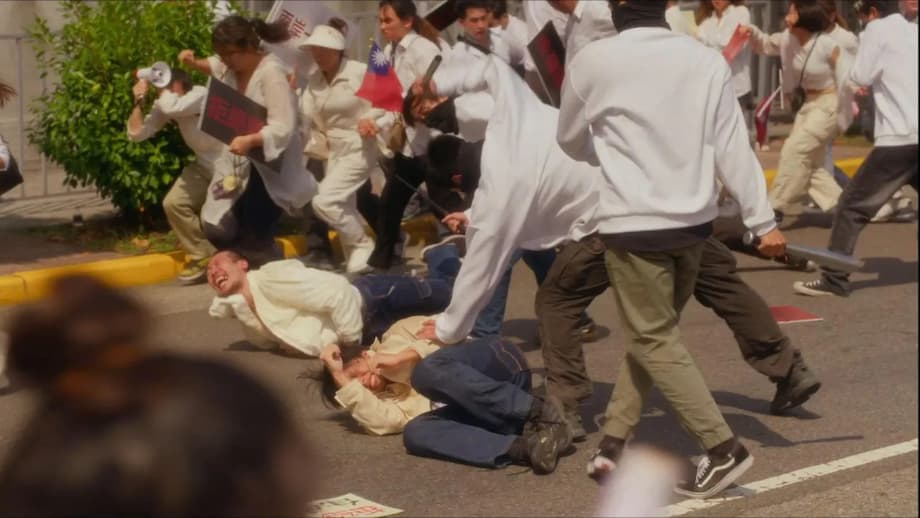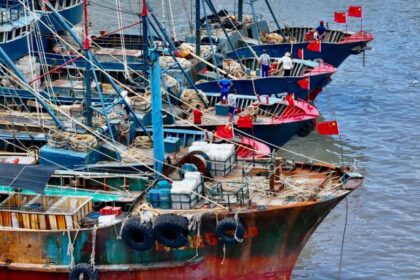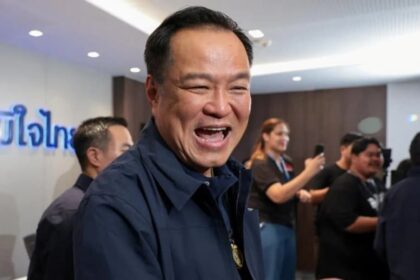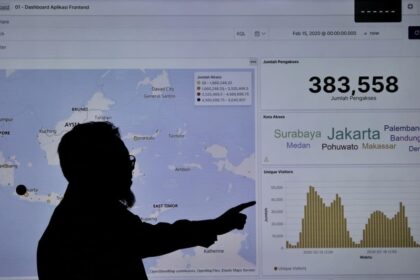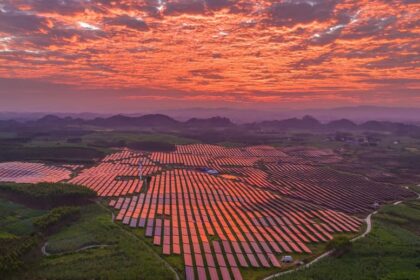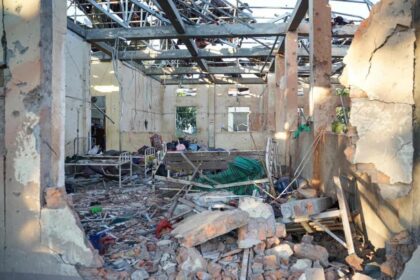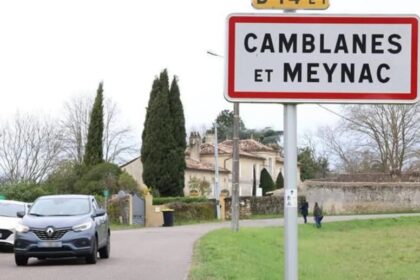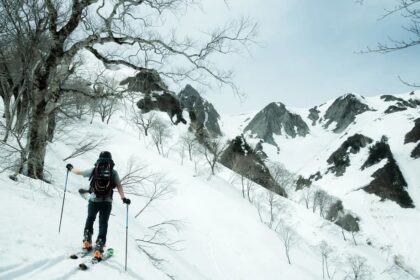Zero Day Attack: Taiwan’s Bold TV Drama Confronts the Unthinkable
In the summer heat of Taipei, as air raid sirens blared for the island’s annual civil defense drill, a new kind of alarm was sounding in living rooms across Taiwan. The premiere of Zero Day Attack, a 10-part television drama, has gripped the nation with its chillingly realistic depiction of a Chinese military invasion—an event long feared but rarely discussed so openly in Taiwanese popular culture.
- Zero Day Attack: Taiwan’s Bold TV Drama Confronts the Unthinkable
- What Is Zero Day Attack?
- Why Now? The Real-World Context
- Debate and Controversy: Fearmongering or Wake-Up Call?
- How Does the Show Portray Modern Warfare?
- Public Reaction: Anxiety, Dialogue, and a Broken Taboo
- Broader Implications: What Does Zero Day Attack Mean for Taiwan?
- In Summary
The show’s arrival is more than just entertainment. It is a cultural flashpoint, a political lightning rod, and a mirror reflecting the anxieties of a society living under the shadow of one of the world’s most dangerous geopolitical flashpoints. As China intensifies its military activities around Taiwan, Zero Day Attack dares to ask: What would happen if the unthinkable occurred?
What Is Zero Day Attack?
Zero Day Attack is the first major Taiwanese drama to dramatize a full-scale Chinese invasion. The series opens with a Chinese fighter jet crashing off Taiwan’s coast, prompting Beijing to impose a naval and aerial blockade under the guise of a search and rescue operation. As the blockade tightens, chaos erupts: communications are cut, financial markets collapse, foreign nationals scramble to evacuate, and Taiwanese society teeters on the brink of panic and collapse.
The drama unfolds over a tense week, with each episode focusing on different facets of society—from government officials and military commanders to ordinary citizens and social media influencers. The show’s creators consulted defense experts, military advisers, and national security specialists to craft scenarios that, while fictional, feel alarmingly plausible.
Showrunner Cheng Hsin-mei, a Golden Bell award-winning screenwriter, was inspired to create the series after Russia’s 2022 invasion of Ukraine. She told CNN, “Frankly, everyone has their own fears and imaginations about the war, but in our daily lives, many avoid it or even pretend it doesn’t exist. As the crisis looms larger over the past two years, I think it’s about time we take a hard look at it and open this Pandora’s box.”
Realism and Artistic Freedom
The production team, including 10 award-winning directors and a cast from Taiwan, Japan, and Hong Kong, went to great lengths to ensure authenticity. With support from Taiwan’s Ministry of Culture and military, the crew filmed in restricted areas such as the presidential office and aboard a warship during drills. Despite government funding and access, both Cheng and director Lo Ging-zim insist there was no political interference in the script or creative process.
“This is not a political propaganda video or patriotic film,” Lo told CNN. “We want to explore what part of humanity will show up in such a state—would it be fragility, fear and greed or courage and empathy?”
Plot Highlights
Key scenes include:
- A Chinese warplane’s disappearance used as a pretext for blockade
- Communication blackouts and internet outages
- Financial collapse and looting in city streets
- Disinformation campaigns and deepfake broadcasts
- Internal collaborators and organized crime groups stirring unrest
- Ordinary citizens forced to choose between resistance, surrender, or escape
One particularly haunting moment features the Taiwanese president’s emergency address being hacked, replaced by a deepfake video declaring war on China, followed by a Chinese state TV anchor urging Taiwanese to report “pro-independence forces.”
Why Now? The Real-World Context
The timing of Zero Day Attack could hardly be more relevant. In recent years, China has dramatically increased its military presence around Taiwan, conducting frequent air and naval exercises and sending warplanes and ships near the island almost daily. The United States and other allies have warned that Beijing could attempt an invasion as soon as 2027, though most Taiwanese still prefer the status quo and do not believe an attack is imminent.
President Lai Ching-te has responded by boosting military spending, reforming defense strategies, and emphasizing the need for “whole-of-society” resilience. This includes civil defense training, urban survival drills, and efforts to counter disinformation and cyberattacks—measures that are echoed in the show’s plotlines.
Yet, as The Straits Times reports, a recent poll found that while most Taiwanese see China as the greatest threat to national security, only a third believe an invasion is likely. Many are more concerned about economic stagnation or declining birth rates. This disconnect is part of what drove Cheng to create the series: “We hope that this show will awaken Taiwanese people to the looming threat of war.”
Debate and Controversy: Fearmongering or Wake-Up Call?
The show’s release has sparked fierce debate across Taiwan and beyond. Supporters praise its realism and courage in tackling a taboo subject, arguing that it serves as a necessary wake-up call for a society that has grown desensitized to the threat of war. “It feels so real and frightening,” said office worker Rachel Hsu after watching the trailer. “I am scared but somehow I still want to watch it.”
Critics, however, accuse the show of stoking panic and serving political interests. The opposition Kuomintang (KMT) party has labeled it government propaganda, while some commentators argue that it makes the Taiwanese government look too inept in the face of Chinese aggression. The phrase “selling dried mangoes”—a play on the Mandarin phrase for “national destruction”—has been used to mock what some see as unnecessary fearmongering.
Beijing has also condemned the series, with Chinese officials accusing Taiwan’s ruling Democratic Progressive Party (DPP) of trying to provoke conflict and divide people on both sides of the strait. References to the show have been censored on Chinese social media, and state media has dismissed it as politically motivated.
Artistic Risks and Industry Impact
Making Zero Day Attack was not without risk. For years, Taiwanese filmmakers avoided cross-strait conflict plots to preserve access to China’s lucrative entertainment market. Over half the show’s crew requested anonymity, and some pulled out at the last minute, fearing repercussions for themselves or their families on the mainland. The cast includes actors like Chapman To, a Hong Kong-born star and vocal pro-democracy advocate who became a naturalized Taiwanese citizen in 2022.
Tech billionaire Robert Tsao, a major investor in the series and a prominent critic of Beijing, sees the show as part of Taiwan’s cognitive warfare against Chinese influence. “If Taiwan falls to the Chinese Communist Party, no one will have a future,” he told The Guardian.
How Does the Show Portray Modern Warfare?
Unlike traditional war dramas that focus on battlefield heroics, Zero Day Attack emphasizes the subtler, more insidious forms of modern conflict. The series highlights “grey zone” tactics—actions that fall short of open warfare but are designed to destabilize and demoralize an adversary. These include:
- Disinformation campaigns and fake news
- Cyberattacks and communication blackouts
- Economic sabotage and financial panic
- Psychological operations and infiltration by sleeper agents
- Deepfakes and AI-generated propaganda
Showrunner Cheng argues that the war has already begun in Taiwan—not with guns and bombs, but with information and infiltration. “For me, the war has already begun in Taiwan. It is not being fought through guns and cannons, but through information and infiltration. It’s permeating our daily lives,” she told CNN.
Military expert Su Tzu-yun of Taiwan’s Institute for National Defense and Security Research, who advised on the series, believes the show can help counter China’s influence operations. “In the face of fear, people can build up confidence, and this can indirectly and partially offset China’s influence warfare,” he said.
Societal Resilience and Civil Defense
A central message of the series is the importance of societal resilience. The show aligns with President Lai’s strategy of preparing not just the military, but all of society, for potential conflict. This includes civil defense training, public awareness campaigns, and fostering a sense of unity and purpose among citizens.
As Lai said in a March speech, “To ensure Taiwan’s security, we hope to rely not just on the armed forces, but also on the forces of defense resilience throughout our society. In that way, we can achieve peace through strength.”
Public Reaction: Anxiety, Dialogue, and a Broken Taboo
The response to Zero Day Attack has been intense and deeply emotional. The 17-minute trailer alone garnered millions of views and thousands of comments, with many viewers expressing both fear and gratitude for confronting a long-ignored issue. “Goosebumps! It’s hard to imagine how we will face it when the day comes… It takes only one moment to lose our freedom,” wrote one YouTube user.
For some, the show is a necessary catalyst for dialogue about Taiwan’s future. Yu-Hui Tai, an associate professor at National Yang Ming Chiao Tung University, told DW that the series marks a breaking of the “spiral of silence” around the invasion threat. “Imagining a Chinese invasion is no longer taboo, reflecting how the spiral of silence has been broken.”
Others worry about the psychological impact, fearing that such vivid depictions of chaos and destruction could increase public anxiety or even prompt some to consider leaving Taiwan. Yet, as tech investor Robert Tsao argues, the alternative—complacency—could be even more dangerous.
International Attention and Broader Media Trends
Zero Day Attack has attracted international interest, with plans for releases on Japan’s Amazon Prime Video and discussions with global streaming platforms like Netflix. The series premiered at the Copenhagen Democracy Summit to a standing ovation, signaling its resonance beyond Taiwan’s borders.
The show is part of a broader trend in Taiwanese media, including board games and video games that simulate invasion scenarios and raise awareness of China’s political infiltration. These creative works reflect a society grappling with existential questions and searching for ways to prepare, both mentally and practically, for an uncertain future.
Broader Implications: What Does Zero Day Attack Mean for Taiwan?
At its core, Zero Day Attack is more than just a TV drama. It is a cultural intervention, a political statement, and a psychological exercise in resilience. By forcing viewers to confront the possibility of war, the show aims to break through the numbness and denial that can set in after years of living under threat.
As Cheng Hsin-mei put it, “We all think it’s a good thing. As long as the show generates attention and discussion, it means that it resonates with something in people’s hearts.”
The series also raises difficult questions about the role of art in society. Should creative works seek to comfort or to challenge? Is it better to foster fear or to encourage rational dialogue? And how can a society prepare for the worst without succumbing to despair?
For now, Zero Day Attack stands as a bold experiment in national self-examination—a story that only Taiwanese people can tell, and one that urgently needs to be told.
In Summary
- Zero Day Attack is Taiwan’s first major TV drama to depict a realistic Chinese invasion scenario, sparking intense debate and reflection.
- The show draws on expert advice and real-world military strategies, focusing on modern “grey zone” tactics like disinformation, cyberattacks, and psychological warfare.
- Its release comes amid heightened tensions with China, which has increased military activity around Taiwan and condemned the series as provocative.
- Supporters see the show as a wake-up call and a catalyst for societal resilience, while critics accuse it of fearmongering and political manipulation.
- The production faced artistic and personal risks, with many crew members requesting anonymity due to fears of Chinese reprisal.
- Zero Day Attack has broken a longstanding taboo in Taiwanese media, opening up new space for dialogue about national security and identity.
- The series has resonated deeply with viewers, both in Taiwan and internationally, and is part of a broader trend of creative works confronting the island’s uncertain future.


